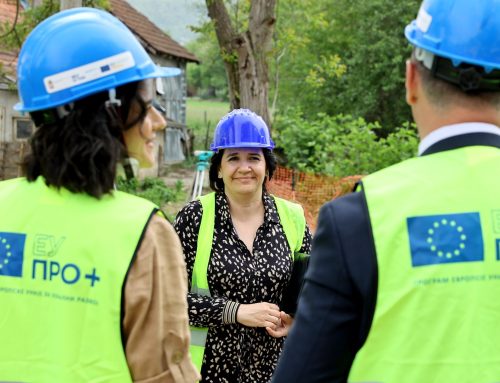Citizens need passport to cross borders whereas viruses, bacteria and contagious diseases don’t, concluded participants in a press briefing held at the EU Info Centre dedicated to chapter 28 – Health and Consumer Protection – organised within the PLAC II programme.
Nicolas Bizel of EU Delegation to Serbia said that the media played an important role in monitoring the EU accession process.
Chapter 28 consists of two segments – public health and consumer protection – said Bizel and stressed that the chapter strove toward the goal of enhancing the quality of consumers’ lives.
“Harmonisation of rules on consumer protection should allow the flow of goods that share the same quality and safety standards,” said Bizel and added that “as far as the public health goes, those rules are designed to prevent the spreading of transmissible diseases and substances of human origin as well as the abuse of drugs, tobacco, alcohol, etc.”
Dragana Radojcic of the Ministry of European Integration said that following a successful screening, Serbia was invited to draft its negotiating position. The drafting is currently underway, she said, so it is not appropriate to comment on the opening of chapter 28.
Hence the support extended through the PLAC II programme is welcome, she said.
State Secretary at the Ministry of Health Meho Mahmutovic said that people needed passports to cross borders, whereas viruses, bacteria and contagious diseases did not.
Of 35 negotiating chapters, health cuts through 20, while the chapter 28 had 17 distinct areas dealing with public health, Mahmutovic said.
Since 2000, the European Union has invested EUR150 million in the field of health, the largest amount of assistance ever to be granted to any country, said the participants in the briefing “On the EU path – chapter 28.”
Mahmutovic said it would be unseemly to talk about the money needed for the health system in the process of European integration, reminding the press about the results made both in cooperation with the EU and through national funding.
The Achilles heel of our health system, he said, is the fact that citizens are not in habit of undergoing general medical examinations, adding that the system offers colon, breast and cervical screenings. By the end of 2017, diabetes and mental health screenings should also be put in place, he noted.
Legal advisor for European legislation on health and data protection at the Directorate General of Research of the European Council in Brussels Tobias Schulte in den Bäumen said the EU did not provide any strict guidelines regarding allocations intended for the health system.
Health spending per capita is different in the EU, he said, citing the example of Germany where budgetary allocation for health amounts to EUR450 billion for 82 million people, i.e. EUR6,000 per capita.




